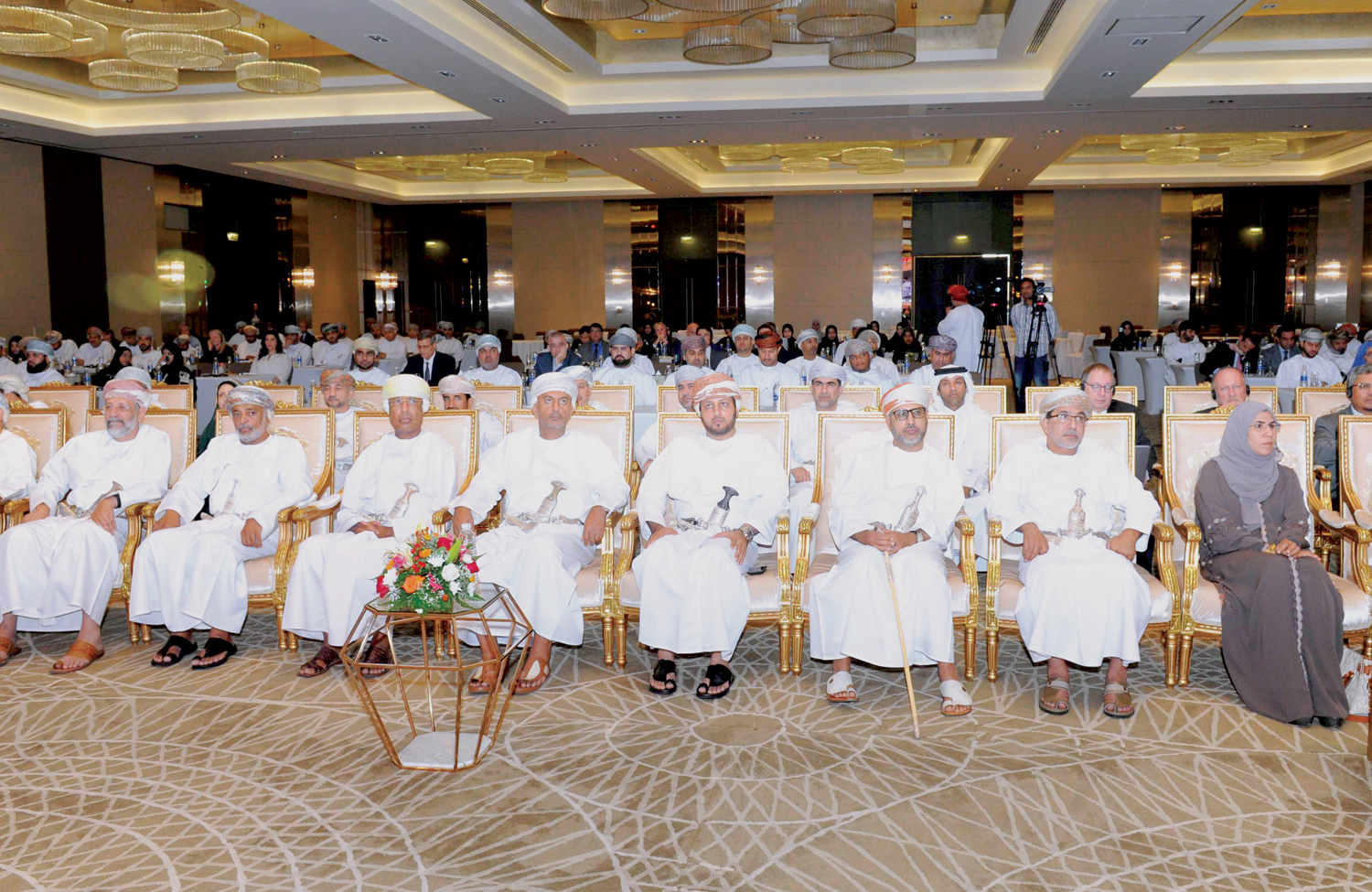

Muscat, OCT 7 - The Omani Authority for Partnership for Development (OAPFD) conducted a symposium here yesterday on ‘The Role of PFD (Offset) Programmes in Supporting Economic Development’. It was held under the auspices of Dr Ali bin Masoud al Sunaidy, Minister of Commerce and Industry and Chairman of the Board of Trustees of OAPFD. The symposium was attended by a number of ministers, under-secretaries and representatives of the government, military and private sector organisations involved with the application of the Partnership for Development (PFD) Programme.
This is the first symposium of its kind in Oman focusing on the Partnership for Development programme (PFD/Offset), aiming to raise awareness amongst the parties involved about the importance and the role of PFD/Offset in supporting the national economy. This Symposium is in addition to OAPFD’s role in organising workshops, conferences and meetings with government, military and private sector organisations, and the foreign partnership concerned with implementing the programme in Oman.
In his opening speech Dr Dhafir Awadh al Shanfari, CEO, OAPFD, said: “The knowledge exchange is a main engine and a significant tool for the development and economic development process, and today we are pleased to hold the first specialised PFD/Offset symposium in Oman, with the participation of Offset experts from around the world, joined by the Omani decision makers, under one roof, to benefit from global experiences and to form and develop PFD/Offset programmes that are consistent with Oman’s vision and the development plans objectives.”
“Oman in the past managed to formulate the policies and regulations for the implementation of PFD/Offset programmes in an easy format, attractive to foreign investments, and consistent with the national objectives to enhance the five strategic sectors defined by the 9th five-year development plan (2016 – 2020), and also consistent with the plan and initiatives of the National Programme for Enhancing Economic Diversification ‘’Tanfeedh’’, which we have felt its impact through the 7 development projects which are now in operation, and 11 projects in the pre-operation stage,” he added.
The seminar started by presenting the most important economic updates on PFD/Offset around the world, through selected international presentations by experts in the PFD/Offset programmes from UK, USA, Malaysia and Norway.
Professor Ron Matthews, Chair Defence Economics, Cranfield University at the UK Defence Academy presented a paper on the international practices in the area of Offset and the importance of this programme in enhancing the military and security sectors. In his presentation he said: “The purpose of offset is the economic, industrial and technological development of the recipient nation. It is entirely appropriate therefore that the term ‘development’ is embedded in the Omani Authority’s title. Partnership is also recognised as central to effective technology transfer through offset. This notion of stakeholder convergence is a critical ingredient of successful offset arrangements leading to the development of local capabilities”.
The conference also discussed the regional and world-wide perception of Offset programmes in a presentation by Cary F Viktor, Chairman of the Global Offset and Countertrade Association (GOCA) during which he said: “The PFD/Offset Programme supports the achievement of national economic and industrial objectives by focusing offset projects on collaborative programmes relating to international joint ventures, joint research and development, technology transfer, education and training where the foreign and local partners strengths are capitalised, incorporating a diverse and inclusive working environment creating a win-win scenario.”
In his presentation, Adrian Dalton, the former Head of the UK Government’s Offset Programme highlighted the significance of Oman’s PFD/Offset programme and its role in the support and development of the national economy, enhancing the investment opportunities for the local sector and building national capacities. In his presentation he discussed the UK’s Offset programme’s contributions towards increasing investment in the UK and stated that he considered that the best use of an Offset programme leads to the establishment of effective long-term business relationships which can then be the basis for delivering important economic development, while adding that “I feel Oman is well placed to gain from its Partnership For Development programme and through it to broaden as well as to deepen its industrial base.”
The symposium also presented the success of both the Malaysian and Norwegian Governments in implementing successful Offset programmes. Dato’ Zailani Safari, CEO of the Technology Depository Agency (TDA) – the Malaysia Offset Authority, which in Malaysia is known as the Industrial Cooperation Programme (ICP), reported on the excellent results achieved by their programme and its positive impact on the Malaysian economy.
Dato’ Zailani Safari reported that the TDA manages 89 ICP programmes and 396 ICP projects worth in the region of $18 billion, adding that “OAPFD is playing the same role, OAPFD efforts in developing the Omani economy through offset programmes are outstanding. This event itself provides a platform for offset industry players in Oman to explore various international offset models shared by the speakers. This also shows the support from the global offset community towards OAPFD initiatives in developing human capital and capability development, transfer of technology, foreign direct investment and many others, which will help support further the development of local industry to the next level.”
Åge Skøelv, Principal Researcher at the Norwegian Defence Research Establishment (FFI) within the Norwegian Ministry of Defence, discussed the Norwegian industrial cooperation policy, described how it has been a crucial tool in safeguarding essential national security interests. Industrial cooperation has also been important for obtaining access to foreign markets and thus led to increased exports from Norway. The growth in the Norwegian defence industry has had positive influence on other sectors of the national economy. Hopefully, the Norwegian success in this field can provide some inspiration and lessons learned for Oman.”
Oman Observer is now on the WhatsApp channel. Click here



